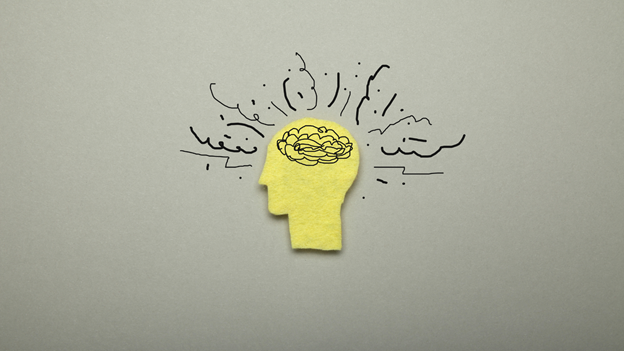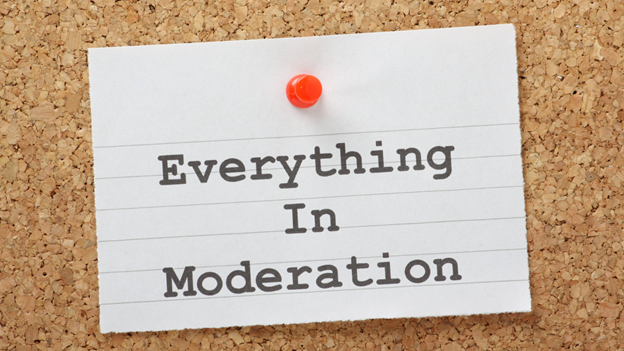How To Limit Video Game Addiction & Play In Moderation

Normally when it comes to breaking a video game addiction we always recommend taking a short break and detox from video games. However, there have been many instances of users coming back and finding the balance between work, personal life and gaming. Hence for those with a more hedonistic outlook on life, we thought that it would be beneficial to discuss ways in which we can play video games but still prevent them from taking control over our lives
Content
Is Gaming Addiction a Real Disorder?

As real as video game addiction may be for many people around the world there is still some debate whether video game addiction should be considered a mental health disorder.
The official term for video game addiction is “Internet Gaming Disorder ” which is defined as problematic and compulsive use of video games that have significant impairment on an individual’s ability to function. The World Health Organisation (WHO) officially recognises video game addiction and further explains that damage to relationships, educational, occupational and other important areas of functioning over a 12 month period are the criteria by which they diagnose it.
Most of the statistical data gathered have coincided with this diagnosis and helped to bring awareness to the problem in many different places. So much so that video game addiction had been included in the ICD-11 which stands for the International Classification of Disease. The ICD-11 is the global health standard for recording health information and causes of death, annually updated by The World Health Organisation.
But what about its applications on a clinical scale? The same criteria for video game addiction have been incorporated into the DSM-5, a Diagnostic and Statistical Manual of Mental Health disorders used by psychiatrists to aid their diagnosis of the addiction. Thus suggesting that video game addiction by and large is an official mental health condition.
However, despite this, proponents for gaming addiction being considered an official disorder have received some opposition from The American Psychiatric association stating that there is insufficient evidence for its inclusion into the DSM-5 but it is still worthy of further study. Furthermore, video game development companies dispute that gaming is not dangerous on the basis that only 4% of the population are officially diagnosed with video game addiction. There is a clear conflict of interest between the developers and the consumers in the gaming industry as though their intentions may not be malicious there is still risk involved on the consumers part
Countries such as South Korea take video game addiction very seriously based on their alarming rates of addiction. The gaming culture out there nurtures the addiction amongst the youth so much so that they considered it a national crisis. As a means of prevention, they set up government-run rehabilitation camps where students can be referred from school or by their parents.
What Are The Signs of Video Game Addiction?

The signs and symptoms of video game addiction are sometimes unclear to the person experiencing them as they are too immersed in gaming. It is difficult for them to take a step back and realise the effects it is having until something significant occurs. On the other hand, loved ones around them will be able to pick up on these changes in behaviour within a few weeks, to say the least.
Here are some of the main symptoms of video game addiction:
- Lack of energy and motivation
- Fall in performance at work/school
- Playing for extremely long periods of time
- Inability to control urges to game
- Damage to relationships and social isolation
- Headaches and eye strain
- Poor sleep quality
- Neglecting other responsibilities to play games
- Obsessive thinking about video games
- Decline in mental health
A lot of the time these symptoms are associated with depression. Video game addiction has been shown to have a relationship with video game addiction so we always recommend that someone experiencing these symptoms should consult a medical professional to get an official diagnosis of their depression if need be.
There are certain risk factors that determine who is more likely to develop video game addiction. Most of them are comorbid mental health conditions such as ADHD, OCD and autism. Hence a lot of the time receiving treatment for their preexisting condition can help to reduce the addictive symptoms of video game addiction.
Benefits of Video Games In Moderation

To say that video games are evil and no one should play is simply an over-exaggeration. There certainly is a time and place for video games like most recreational things that we do. However, video games seem to be one of the more unregulated activities where people are oblivious to the risks of excessive use. Although gamers do not elicit huge cognitive advantages over their non-gaming peers, they can have some slight benefits in certain areas.
Improves Visual Processing Abilities
Visual processing abilities are our capacity to interpret information on screen or in the world around us. When things are displayed to us it takes a certain amount of time for the light to reach our retina and be converted into complex images for us to interpret. It was discovered that those who played video games had a faster rate of distinguishing images compared to the average non-gamer.
Studies were carried out to test this by showing letters or numbers on the screen at increasing speeds. The participants would have to press the relevant button to identify the letter or number on the screen. When the person blinked it was a good indication that they were struggling to process the information at that speed. They tested it on non-gamers and Masters rank League of Legends players to make a comparison. They found that the gamers had outperformed the average non-gamer showing a better ability to allocate limited resources to visual stimuli.
Improving Short Term Memory
Researchers found that those who played video games for four hours a week performed better in visual short term memory tests compared to non-gamers. The two groups were tested on both visual and auditory short term memory. While the gamers did better in visual short term tests, there was no difference between the two groups when it came to auditory short term tests. This does suggest that gaming can have some memory benefits but not significantly enough to encourage regular gaming habits.
Gaming in Moderation or Video Game Detox?

Breaking a video game addiction isn’t an easy task and it is often a big lifestyle change. Hence why it is always important to encourage any progress or step in the right direction. Playing in moderation, we define as finding a healthy balance where video games do not interfere with other functional areas of your life and can be avoided if need be. Sometimes the idea can be misconstrued as playing 29 hours a week as opposed to 30 and considered a healthy change when that simply isn’t true.
Everyone’s situation is different and some people require more support than others. Some people’s addictions may be more severe than others hence why it may not be fair to suggest a 90-day detox right off the bat in some cases. Ideally, we should strive to cut video games out to give our brains a moment to recover but those who can develop healthier habits from the get-go are more than welcome to try this solution.
Detoxification and playing in moderation both have their benefits. Detoxification helps to allow our brains to recover from the dopamine desensitisation caused by excessive gaming while also giving us perspective on life without video games. Life without video games is an important concept to become acquainted with as it allows us to hone in on different pleasures outside of gaming.
Whereas playing moderation makes for good opportunities to stay in contact with friends made through gaming. Many people may not have a family and friend support network around them to help overcome their addiction so having these friends around can sometimes offer the social support they need. Playing in moderation also helps our ability to control our unhealthy habits. Building the willpower to consciously make healthier decisions is a skill that can help in multiple areas of life not just controlling gaming habits. We can only encourage resilience and consistency as these are traits that breed success in anything we put our minds to.
Children With Video Game Addiction
When it comes to breaking a child’s video game addiction we seldom recommend making them detox from video games. The reason being, their minds and habits are a lot more malleable than adults. This, alongside having figures of authority like parents and carers to point them in the right direction and establish healthy boundaries with gaming, is more than enough to treat their addiction.
Top Tips to Play In Moderation

Most people struggle with controlling the amount of video games when they cut down from excessive playing. So here are some of the most effective methods successful users have been able to apply in order to play video games in moderation.
Create a Schedule
Organising your day into a schedule is an extremely effective way to eliminate playing on impulse. When we have no direction in our day and go primarily off of feeling it’s difficult to be productive. The chances are that if you are addicted to video games the main thing you will feel for the day is the urge to play video games and thus this is what you do.
So, instead try to create a schedule, in a journal, an app on your phone or on your computer. It doesn’t have to be a strict military regime telling you what to do by the hour on the hour. But, giving simple tasks like “start studying at 12” or “clean room/housework at 3” can prevent you from feeling lost or bored during the day.
Of course, this will mean putting gaming into your schedule but this is the one thing we have to stay strict with. After all, we want to cut down on our gaming habits so it’s no use playing as much as you normally do. We’d suggest starting with maybe a 2-3 hours time slot if this is less than your normal amount and trying to work your way down from there.
Play With Someone Responsible
If you happen to have siblings, friends or people close to you that do not play video games regularly then they could make the perfect gaming partner. Playing with someone who does not have the same affinity towards video games is the best person to hold you accountable. Let them know about your goals to cut down and the amount of time you should be playing for and let them join in with you. Avid gamer friends might find it difficult to set constraints as they are likely to be more lenient. But, a totally not interested older sister could make for a great disciplinary enforcer.
Those of you that struggle with following self-imposed limitations go and get someone that can hold you accountable to your commitments to playing less video games.
Time Management Techniques
When someone suffers from video game addiction a common symptom is playing for extremely long periods of time and also losing track of time. Therefore gaming addicts have quite poor time management skills when it comes to being productive.
One method of time management that we recommend to all of our users is The Pomodoro technique. How it works:
- We will be breaking up our playing time into 25-minute intervals and 5-minute breaks
- After every 25 minutes of gaming, we take a 5-minute break
- During this break, we should carry out an alternative activity totally unrelated to gaming
- The break activity is totally up to you. It could be going for a walk, making a snack, completing work/schoolwork or doing chores anything
- After we go through our 25-minute intervals 4 times we should increase the break time from 5 minutes to 10 minutes
- We repeat this for as long as we need to until our day is done. The breaks can go up to any time you like but the importance is to keep 25-minute intervals of playing the same
- If we begin to increase the 25 minutes of playing it defeats the whole purpose of the exercise and it begins to fall apart
This method has proven to be useful for many users. The aim of the Pomodoro Technique should be to get the ”breaks” from gaming where we do our productive activities to be longer than the 25 minutes of gaming to improve our productivity.
Overall the technique doesn’t just help those suffering from video game addiction. If you feel like you want to get more productivity out of your day then give this a try!
Alternative Activities
We understand that video game addiction might have made other activities in your life seem boring in comparison. However, this is because gaming offers different types of stimulation that no single activity will be able to match. For instance, gaming gives us the opportunity to feel rewarded and see measurable growth, it allows us to meet friends online and socialise and it also acts as a great way to unwind and relax in the evenings.
Therefore our solution is to find some new or even old hobbies you used to enjoy for each of these different areas video games satisfy. We go through some perfect examples in our alternative activities to video games article so take a look and get inspired when you have the chance.
There are different schools of thought on whether you should play video games in moderation or not. Some believe it is not possible to overcome video game addiction by playing in moderation whilst many who have managed to get their habits under control would disagree. We believe that moderating the amount of video games you play is a healthy alternative but we should always consider giving our brains a break and a chance to experience other pleasures in life. Then come back with a healthier outlook on how we behave and what we want to achieve.
Whatever you decide to do in order to overcome your video game addiction, The Mindful Gamer is always here to help.








